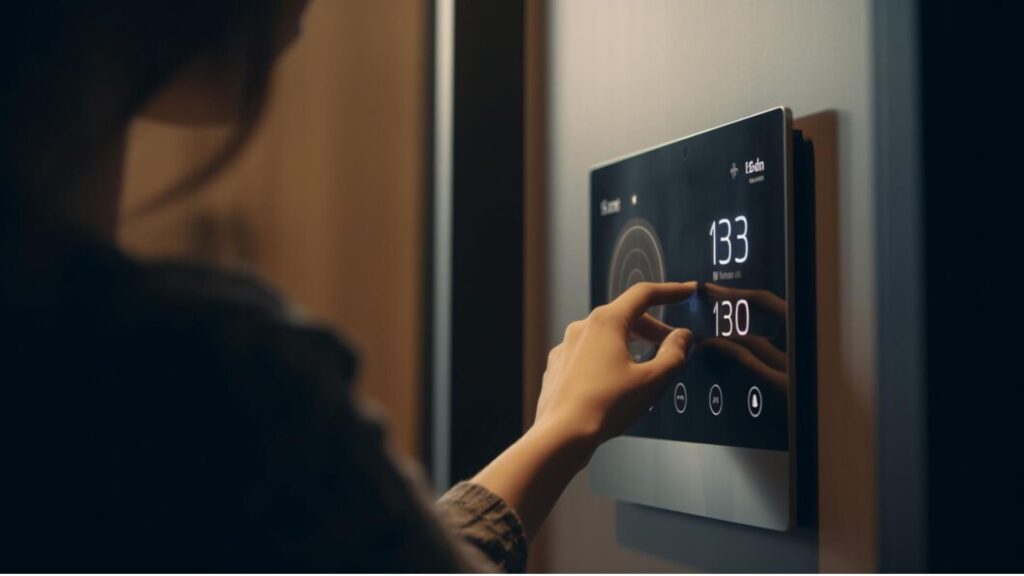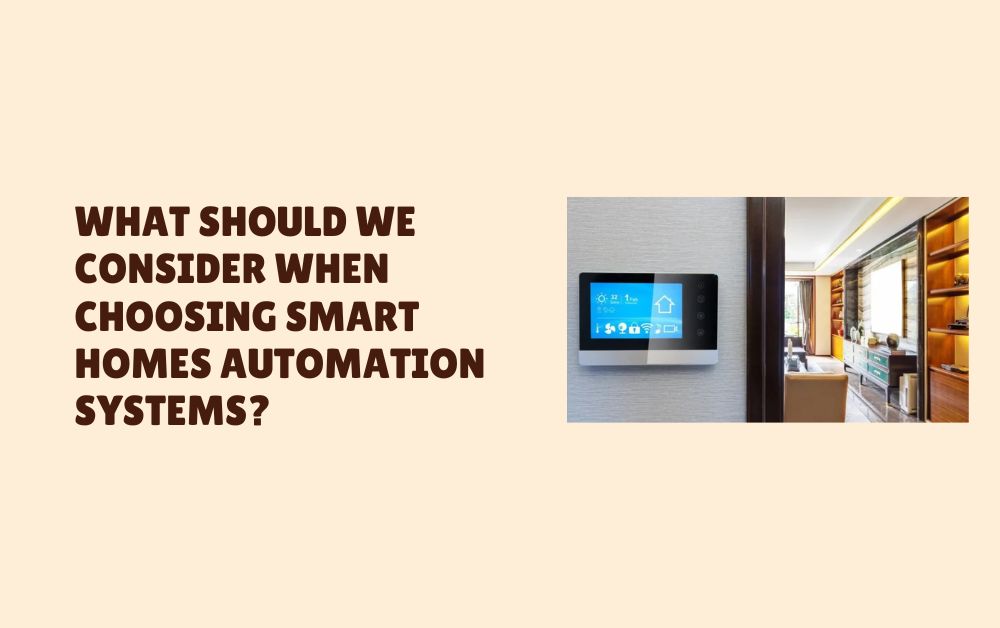Choosing the right smart home automation system is crucial for enhancing your living experience. Smart home technology can make your life easier, more comfortable, and even save you money. However, the vast array of options available can make the selection process seem overwhelming. This blog aims to simplify that process by outlining key factors to consider when choosing a smart homes automation system.
An Understanding of Automation in Smart Homes
Smart Home Automation: What Is It?
Smart home automation involves using technology to control various aspects of your home environment. This includes systems for lighting, heating, air conditioning, security, and even entertainment devices—all of which can be managed remotely via smartphones, tablets, or voice commands.
How Does Smart Home Automation Work?
These systems connect and communicate through a central hub or over a Wi-Fi network, allowing you to control various devices from one platform. Whether it’s adjusting the thermostat or checking security cameras, you can manage your home with just a few clicks or by using simple voice commands.
Key Factors to Consider When Choosing a Smart Home System
1. Compatibility
When choosing a smart home system, ensure it’s compatible with your current appliances and devices. If you already own smart devices, like speakers or cameras, you’ll want a system that can integrate seamlessly with them.
Tips for Checking Compatibility:
- Device Support: Check if the system supports the devices you already have or plan to buy.
- Operating Systems: Make sure the system works with your smartphone’s operating system, whether it’s iOS or Android.
2. Ease of Use
The best smart home systems are easy to use. The interface should be user-friendly, so you don’t need to be tech-savvy to operate it.
What Makes a System Easy to Use?
- Simple Interface: Look for a system with a straightforward, intuitive app.
- Voice Control: Systems that work with voice assistants like Alexa or Google Assistant can enhance ease of use.
3. Features
Consider what features are most important to you. Different systems offer various features, such as energy monitoring, automated schedules, and remote access.
Important Features to Consider:
- Automation: Can it automate tasks like turning off lights or locking doors at a certain time?
- Energy Management: Does it offer features to help save on energy bills?
- Security: Does it include security features like cameras and alarms?
4. Scalability
A good smart home system should be scalable. This means it should be easy to add more devices as your needs grow or as new technologies become available.
How to Assess Scalability:
- Expandable: Check if the system can support more devices if you decide to add to your setup later.
- Flexible: Look for systems that allow you to add different types of devices, not just more of the same.

5. Cost
Cost is always a consideration. The price of smart home systems can vary widely, so it’s important to set a budget and consider both initial costs and any ongoing fees.
Cost Considerations:
- Initial Investment: What is the cost of the hardware and installation?
- Subscription Fees: Are there ongoing monthly fees for app access or cloud storage?
6. Security
Security is crucial, especially since smart home systems are connected to the internet. Make sure the system you choose has strong security features to protect your data and your home.
Security Features to Look For:
- Encryption: Ensure communication between your devices and the cloud is encrypted.
- Regular Updates: Choose a system that offers regular software updates to protect against vulnerabilities.
- Privacy Controls: Check what data is collected and how it is used.
7. Customer Support
Good customer support can be very helpful, especially when setting up a new system. Check what support options are available and read reviews to see how responsive and helpful the company is.
Customer Support Essentials:
- Availability: Look for 24/7 support, whether it’s via phone, email, or live chat.
- Resources: Good companies often provide tutorials, FAQs, and forums for additional help.
- Warranty: Ensure the system comes with a warranty to protect your investment.
Conclusion
Choosing the right smart home automation system involves considering compatibility, ease of use, features, scalability, cost, security, and customer support. By taking the time to evaluate these factors, you can select a system that not only meets your current needs but also adapowers future expansion. With the right system, you can enjoy a more convenient, comfortable, and secure home.




